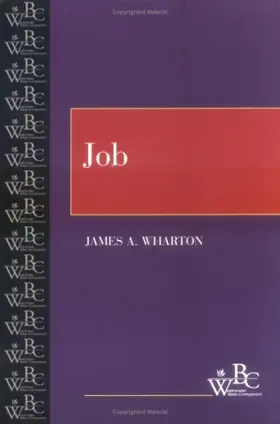

Job
in Westminster Bible Companion
Pages
191 pages
Publisher
Westminster John Knox
Published
4/1/1999
ISBN-13
9780664252670
Reviews
A literary reading of the book of Job that emphasizes Job's search for and gift of the presence of God.
[Full Review]
Louisville: Westminster John Knox, 1999. Pp. viii + 191, Paperback, No Price Available, ISBN 0664252672. Michael Cheney Athabasca University Masset, BC Canada V0T 1MO J. A. Wharton's recent contribution to the Westminster Bible Companion shares the series' stated aim of sustaining and guiding the Christian "community of faith," by "opening the Word of God to all the people." This is, of course, an ambitious objective and one that is sure to evoke discussion and controversy. In my judgment, Wharton's exposition of Job has succeeded in introducing Job's controversial aspects where many other attempts to bring biblical books to "the people" have not been able to advance beyond a banal "devotional" quality. Wharton also steers clear of many of the pitfalls that have dogged the steps of many academic interpreters of Job throughout history. Perhaps the most important aspect of Wharton's presentation is the notion that "the function of Job, from the time of its inclusion among the Holy Scriptures of Judaism and Christianity, has never been to provide answers to the questions it raises." Instead, Wharton suggests, Job has been a constant source of questions, reanimated questions about how people of faith should relate to God in the light of the reality of suffering. Wharton's overview of the structure of Job sidesteps the primrose path on which comprehending the true meaning of a text consists of nothing more that reconstructing original, authentic, authorial intentions. The discontinuities in Job are acknowledged, but the traditional facile escape from confronting its meaning "as it is" is not explicitly offered to the reader. By way of introduction, Wharton also takes up the question of Job's deviation from the Israelite norm in its use of divine names.
[Full Review]

